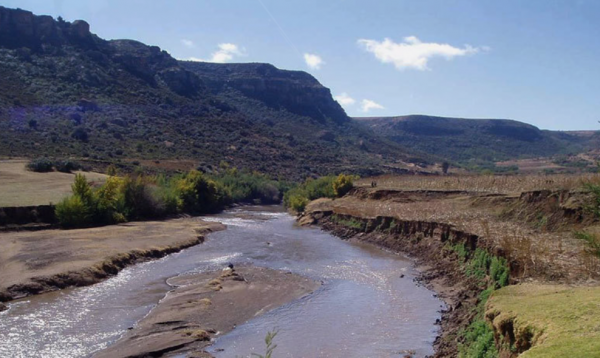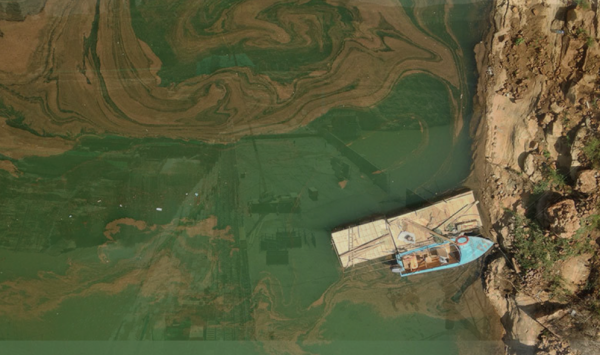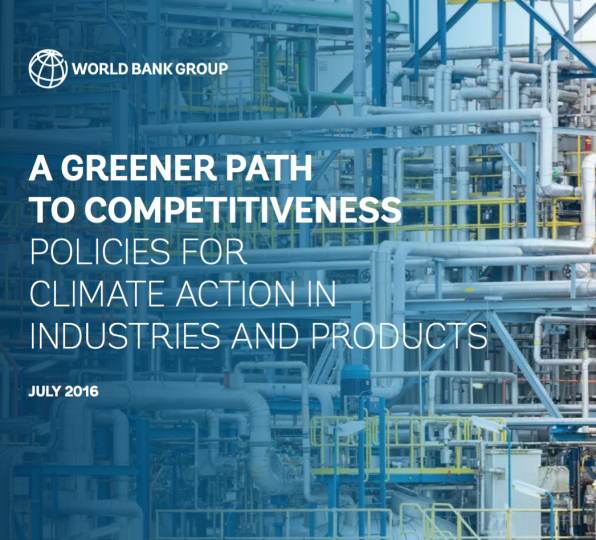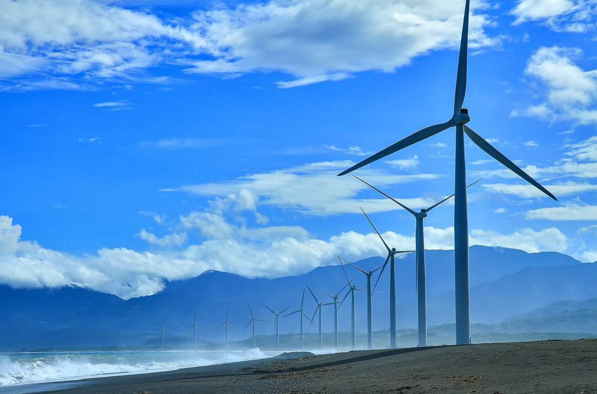The report evaluates the vulnerabilities, challenges, and opportunities in the Lesotho water management system. It offers an analysis on the need to ensure continued development of one of the Mountain Kingdoms most valuable natural assets, its water resources, in order to increase security around the nexus of water, food, and energy along with sustained economic development. This is in line with the World Bank Group’s goal to support the most vulnerableby ending extreme poverty and promoting shared prosperity.
The report examines the implications of climate change for Lesotho’s future development and economy, focusing particularly on the different water infrastructure investments being considered by the Government of Lesotho. Through assessing the performance of the water management system the study tests how different adaptation strategies would affect water availability for different sectors under a wide range of possible future climatic conditions up to 2050.
Report conclusions include:
The ninth Sustainable Development Goal advises countries to build resilient infrastructure, promote inclusive and sustainable industrialization and foster innovation. Industry has historically been one of the most important pillars of economic and social development, but traditional resource-intensive and heavily polluting production is no longer sustainable in the face of climate change.
[video: https://youtu.be/H9C70PjDnQc?list=PLP4sAOqSRnUKRFlDo8z3K3pK4Dv5e_x_z]
The green-certified Sydney Opera House has announced ambitious new sustainability targets that extend the savings, efficiencies and environmental legacy of a building that has become the symbol of modern Australia.
This assessment report quantifies the everincreasing material flows required to build, maintain and operate the cities, transport systems, food supply and energy systems on which today’s world depends. The importance of understanding these flows is twofold. There are very important environmental impacts related to the mobilization of materials for use in economic activity. Large-scale change in land use and forest cover accompanies the extension of agriculture, timber production and in some cases mining and energy extraction.
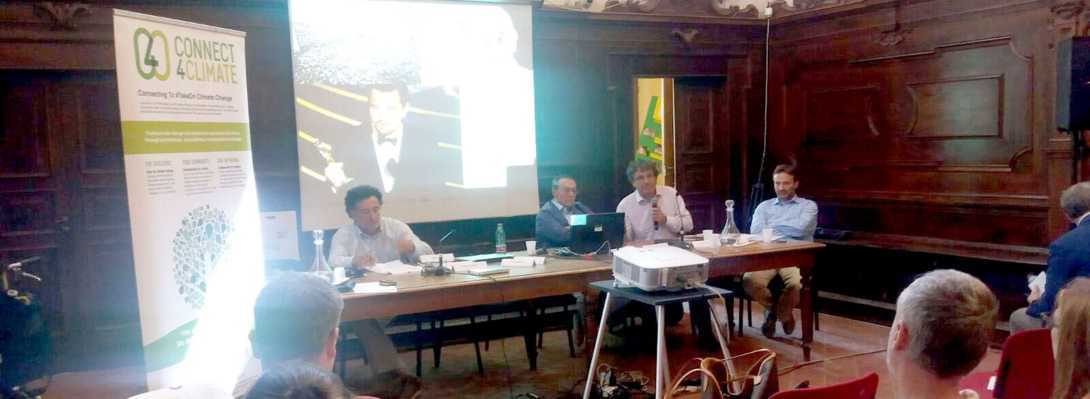
The World Bank Group's Connect4Climate program organized a climate change discussion during the Festival of Participation promoted by the Italia, Sveglia! (Italy, Wake up!) alliance.

Ensure access to affordable, reliable, sustainable and modern energy for all is the 7th Sustainable Development Goal. In this sense it is crucial that we take action by exchanging ideas on how to achieve the goals of universal access and improvement of renewable energy efficiency, as well as creative solutions. You have accepted the challenge by sharing your climate stories and creative solutions regarding clean #Energy. Your pictures are truly inspiring, one in particular, from Allan F. Castañeda, this week's finalist of #Photo4Climate Instagram Challenge.
Congratulations Allan Castañeda, your photo is detailed in its description of how the windmill farm is helping to mitigate the effects of Climate Change in the Philippines while offering background information on windmill power in Southeast Asia.
Take a look at the original caption:
The Bangui Wind Farm consisting of wind turbines on-shore facing South China Sea and it is located at the municipality of Bangui, Ilocos Norte, Philippines. This is the first power generating windmill farm in the Philippines and considered one of the biggest in Southeast Asia. This windmills project by the NorthWind Development Corporation as a practice renewable #energy sources and to help reduce the greenhouse gases that cause global warming and #climatechange.
Photo Credit: Allan F. Castañeda.

Depuis désormais deux ans, l'électrification de l'Afrique est devenue une cause internationale et les initiatives se multiplient afin de donner un accès à la lumière aux quelques 600 millions d'africains qui en sont privés. Les initiatives les plus médiatisées sont bien entendu le power Africa de Barack Obama, l'initiative Akon lighting Africa, le plan de la Banque Africaine de Développement ou encore l'initiative Energies pour l'Afrique de Jean Louis Borloo. Mais au niveau local, des jeunes se sont également lancés.
C'est le cas du béninois Adam Goundi que nous avons rencontré. Le jeune homme s'est fixé l'objectif d'électrifier les foyers modestes, en particulier dans les zones rurales, en utilisant une technologie unique. Un pari qui s'est avéré payant puisqu' Adam a déjà installé ses produits dans les villes de Djougou (510 km de Cotonou) et de Parakou (400 km de Cotonou) et qu'il a reçu le soutien des autorités béninoises. Il a même été sélectionné parmi les lauréats 2015 du concours des 1000 meilleurs entrepreneurs africains organisé par la fondation Tony Elumelu.
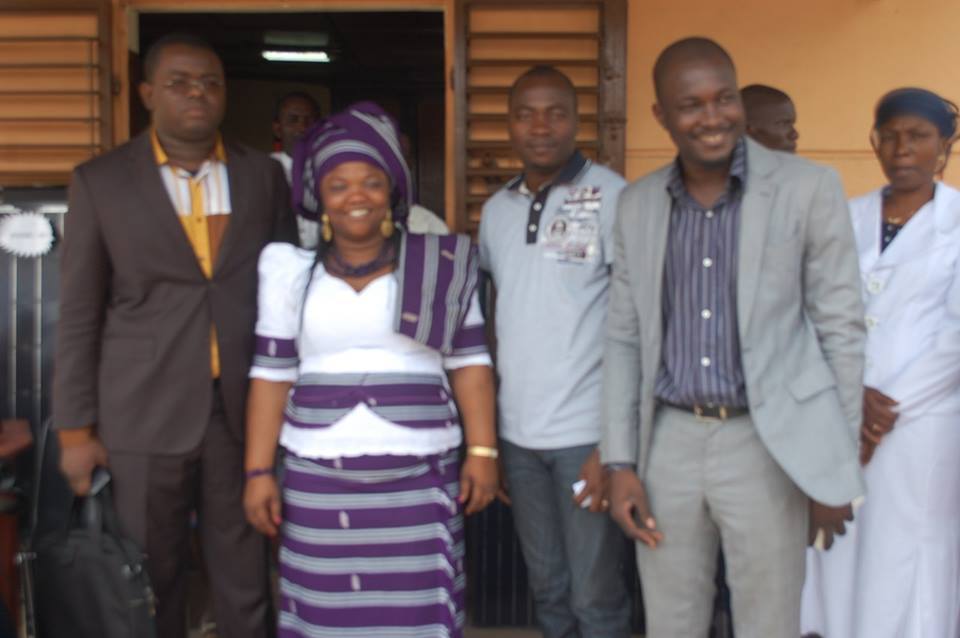
Photo Credit: Ecologique et Economique
Ecologique et Economique: Bonjour mr, pouvez vous vous présenter svp?
Adam Goundi: Bonjour, je m'appelle Adam Goundi et je suis le fondateur de la Benin Energy Sarl. Mon entreprise produit des panneaux solaires photovoltaïques tropicalisés et des mini kit solaires. Nous venons également de créer un module solaire intégré à internet haut débit qui permet d'accumuler beaucoup plus d'énergie que les panneaux solaires photovoltaïques.
Ecologique et Economique: Comment avez vous eu l'idée de lancer ce projet?
Adam Goundi: Mon idée est partie d'un constat assez simple. L'Afrique dispose de l'un des meilleurs taux d'ensoleillement du monde mais est paradoxalement l'un des continents qui importent le plus d'énergie: mon pays, le Bénin importe par exemple plus de 80% de ses ressources en énergie. Et le comble, c'est que les petits groupes électrogènes que nous importons sont bruyants et tombent en panne continuellement. C'est dans ce contexte que j'ai décidé de réfléchir à une solution à la fois sûre, économique et écologique pour accéder à l'énergie.
Ecologique et Economique: Concrètement, quelles sont les capacités de vos produits par rapport aux produits classiques (en termes de performance, de coût et d'accessibilité)?
Adam Goundi: Nous sommes spécialisés dans la vente de mini-kits solaires tropicalisés d'une puissance variant entre 3,5 et 5 ampères. Ils sont équipés de deux sorties: une sortie de 12V pour les luminaires et une de 220V pour les appareils contestables. En général, ces kits sont utilisés par les populations pour faire le commerce de charge des portables dans les zones enclavées.
Pour des installations qui demandent une puissance plus importante, nous faisons un dimensionnement et nous installons une mini-centrale photovoltaïque. Au niveau des prix, nos produits varient entre 250 000 et 500 000 FCFA ( y compris les convertisseurs et les contrôleurs de charge). Cela les rend légèrement plus chers que les produits classiques mais nous compensons avec une très belle performance sur la durée et un service après-vente sur 18 mois.
Ecologique et Economique: Comment les populations ont t'elles accueilli votre projet? Et quels sont les obstacles que vous rencontrez?
Adam Goundi: Il faut dire qu'au début, les populations ont été sceptiques sur la qualité de mes produits: ils sont en effet nombreux à avoir testé de mauvais produits ou à avoir fait confiance à de mauvais techniciens par le passé. Puis, ceux qui ont tenté ma solution ont très vite compris son efficacité par rapport aux produits classiques et le bouche à oreille a fonctionné.
Pour vous donner plus de précisions, je vous dirai que mes panneaux chargent uniquement à la lumière du jour et que le taux d'humidité intégré leur permet de rester chargés même pendant 5 jours de pluies diluviennes. Je vous dirai également que mes systèmes s'installent automatiquement et qu'ils sont utilisables dans tous les types de domiciles (appartement, villas....) et dans toutes les régions. Et bien entendu, le point le plus important c'est qu'en utilisant mes solutions, les populations n'ont plus besoin de l'énergie classique. Nous développons également une offre adaptée aux entreprises en fonction de leurs besoins.
Ecologique et Economique: Quels sont les soutiens dont vous bénéficiez dans votre aventure?
Adam Goundi: Nous avons reçu de nombreux encouragements de la part des citoyens et des autorités. Notre ministre de tutelle m'a même reçu à son cabinet et s'est ensuite déplacé dans mon unité de production en compagnie de tout son staff technique. Du côté financier, le projet vit pour le moment grâce à mes propres économies et au dévouement de mes collaborateurs. Mais comme vous vous en doutez, ce n'est pas facile tous les jours.
Ecologique et Economique: Nous savons que la production des panneaux photovoltaïques n'est pas toujours facile sur le continent. Quelle est la particularité de votre solution?
Adam Goundi: Notre technologie consiste à produire des modules photovoltaïques mono cristallin en sites isolés dans lesquels nous introduisons le taux d'ensoleillement et d'humidité nécessaire pour les adapter aux conditions climatiques de nos pays. Nous utilisons une technologie taïwanaise que nous adaptons dans notre usine située à la frontière entre le Bénin et le Burkina Faso.
Nous veillons également à ce que les batteries soient adaptées au climat et pour cela nous utilisons des batteries au gel que nous importons depuis la France, l'Espagne et l'Allemagne.
Ecologique et Economique: Quel est l'impact de votre projet en termes économiques, sociaux et environnementaux?
Adam Goundi: Sur le plan social, mon projet a plusieurs retombées. D'une part, il permettra l'accès à l'énergie pour les zones enclavées et donc un accès à l'éducation pour les enfants de ces zones. Il faut dire qu'actuellement de nombreux enfants ont des difficultés à préparer leurs cours à cause du manque de lumière et que les enseignants voient comme une punition les affectations en zones enclavées en raison également du manque d'électricité. D'autre part, il permettra la création d'emplois permanents : j'emploie déjà 10 techniciens et je compte en recruter davantage quand mon activité se développera.
Sur le plan écologique, mon projet réduira les émissions de CO2 puisque la production d'une centrale électrosolaire de 40 KHW évite la production de 40 tonnes de CO2 par an. Et sur le plan économique, il permettra aux béninois de réduire leurs factures énergétiques tout en évitant les nombreux délestages dont ils sont actuellement victimes.
Ecologique et Economique: Quels sont vos besoins actuellement?
Adam Goundi: J'ai de nombreux projets pour l'énergie solaire dans mon pays et c'est pourquoi j'aimerais trouver des investisseurs.
Ecologique et Economique: Nous vous remercions pour cet entretien.
Adam Goundi: C'est à moi de vous remercier
Touré Kany Abiba Nelly Carla est docteure en sciences économiques. Elle s'intéresse depuis cinq ans maintenant à la question du développement durable en Afrique et elle a déjà écrit plusieurs articles scientifiques sur le sujet. Elle est fondée depuis un an le blog EcologiqueetEconomique avec pour objectifs de sensibiliser les populations africaines au développement durable et de démontrer la pertinence de l'économie circulaire sur le continent.
Voir Plus ici.
